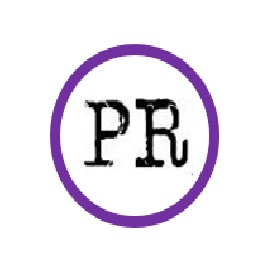COMMUNICATION IS KEY!
Telephone, email, text, even faxing? There are so many ways to communicate nowadays. But no matter the method you use, there is one thing that will never change: Communication is key to success in the job search process!
Communication in the job search process and throughout your career will be the first impression that you give to many of your colleagues and supervisors. Your method and timing of communication must be concise, clear, and most of all, professional. We’ve talked about updating an email address and signature, and preparing your voicemail to begin a professional job search process. After your application is submitted, there is a communication protocol that you’ll want to follow to remain respectful while reinforcing your interest in the available position.
Some “rules” to keep in mind in all communication to recruiters and potential employers:
Format your emails as if you are speaking to the President of the company. You never know who will be reading your message. This frame of mind will ensure that all emails are professional and respectful.
Do not write an email as you would if you were having an informal conversation. State why you’re writing the email, how the person knows you, and ask for the information that you’d like to know. This isn’t a friend that you’re writing to; it’s someone who could potentially be your boss!
Introduce yourself formally at the beginning of each telephone conversation. State your full name, and the last time that you spoke with the person on the other end of the line. Never assume that the person you are calling will immediately remember you or why you are calling.
State your reason for calling as precisely as possible. If you need to, make some notes for yourself or even write a loose script of what you would like to say.
Lead the conversation. You initiated the call or email conversation, so take ownership of what you’d like to know. Don’t allow for long periods of silence, or assume that someone else will offer up information; ask questions respectfully and stay focused.
If you miss a call from a contact, return the call only when you can give the conversation your full attention, and when you are able to call from a quiet, secluded area. Don’t try to call back immediately in an attempt to “catch” the person. It is better to take your time, and it is very rare that you ever will get a hold of the person immediately following a missed call. Most likely they have moved on to another call or meeting.
Timing is also important in communication. Follow this timeline for phone or in-person interviews:
Following Day: Send a “Thank You” email to the person who conducted the meeting. Reiterate some duties of the position that especially interest you, and make a statement about how you are a good fit for the job:
“I was very interested to hear about the audit duties that this position will hold. My education in coding guidelines will allow me to apply that knowledge to coding audits, and reinforce correct coding.”
One Week Later: Send an email to touch base and ask if there is anything else that is needed from you to continue the process. If timing of the decision was discussed in the interview, follow that schedule instead. For instance, if they said they would be making a decision in the next two weeks, take this step two weeks following the interview instead:
“I just wanted to follow up on our interview discussion. I’m still interested in this amazing opportunity, so please let me know if there is anything else you need from me at this time.”
Following the Selection of a Candidate: No one wants to get an email or phone call that delivers the news that another candidate has been chosen for a dream job. If an email is received with this news, respond quickly and respectfully. A phone call conversation should be handled professionally as well. Don’t ask why, or make an emotional statement or plea.
“Thank you for this opportunity; I enjoyed speaking with you about the job. Please keep me in mind for future positions, as I am still very interested in working at the company.”
After a little time, and some experience, you’ll find that the communication comes easily! Remember if you practice patience, respect the time of everyone involved, and always display your professionalism, good things will come your way.
